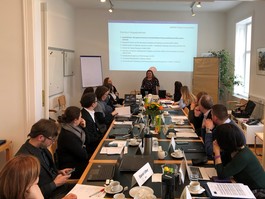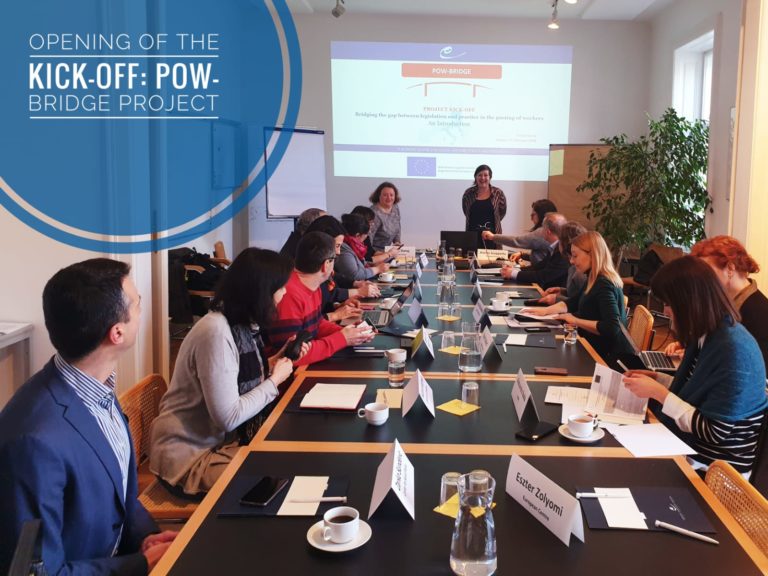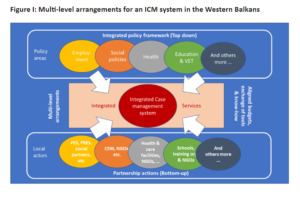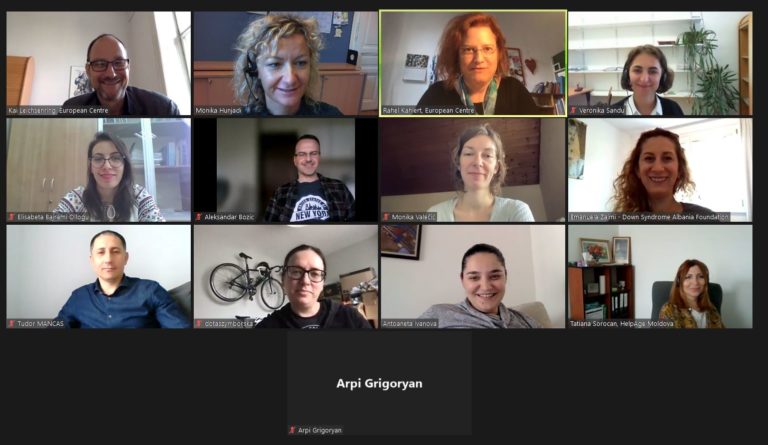Crisis in Serbia: Economic Measures regarding the Coronavirus Situation
Aleksandra Nikolajević, Teaching Assistant, University of Niš
In periods of crisis caused by major social upheavals such as the current coronavirus pandemic (SARS-CoV-2), society is derailed with great consequences to social institutions and people’s lives. The states’ response to this challenge is varied, although most countries are implementing measures to regulate the market and its basic principles in order to meet the subsistence minimum and ensure the socio-economic security of their citizens. Globally, we are witnessing various market shifts such as increasing government interventions, extensive capital expenditures, the emergence of alternative supply chains, and the like. Although the range of state intervention measures is very broad and varied depending on the country, we will also look at the packages of measures that the Government of the Republic of Serbia recently adopted as a “tool” for combating the socio-economic consequences caused by the coronavirus.
The measures adopted by the Serbian Government have mostly already been implemented, while it will take a longer period of time to see their effects. The adopted socio-economic measures are aimed at preserving the well-being and living standard of the people, with a special emphasis on maintaining the achieved level of employment and strengthening entrepreneurs significantly affected by the crisis. In times of major turbulence, it is a special challenge to find an effective formula for the sustainability of public revenues and expenses, adjusting tax policy, and reorganizing budget funds. A great impoverishment of the population, mass layoffs, and a decline in living standards are just some of the burning problems that the Republic of Serbia is facing during the pandemic. Overcoming the crisis and remediating the mentioned consequences are possible only through state intervention and the implementation of a set of socio-economic measures that, in the case of Serbia, come in the form of tax-policy, stabilization, and comprehensive socio-economic measures.
First of all, tax-policy measures aim to relieve entrepreneurs (employers) of the great pressure created by the suspension of trade and production, the ban on public gatherings, and the introduction of a curfew, which has stopped many economic activities. The initial idea is to empower employers in the period when they are conducting business with large losses and to maintain the liquidity of business entities and taxpayers in order for them to successfully cope with the crisis (and keep their employees). Specifically, this set of tax-relief measures for the economy means that 1) all private companies are allowed to defer the payment of payroll and contribution taxes during the state of emergency (at least over a three-month period); 2) the payment (advance) of profit taxes is deferred for the second quarter of 2020, and 3) taxpayers that donated equipment/funds for remediating the consequences of the pandemic are exempt from paying VAT.
In order to prevent the “economic virus of illiquidity“, other direct assistance measures for the private sector were introduced in the form of providing assistance to all entrepreneurs over a period of three months in the amount of three net minimum wages for large, medium, and micro-businesses. Special measures were aimed at large enterprises, which were granted assistance in the amount of 50% of the net minimum wage (for employees who have been sent home). Additional planned financial incentives for preserving the liquidity of business entities include favorable loans from the Development Fund and loans from commercial banks. Companies that fulfill the conditions for exercising the rights to financial incentives include those that have not reduced the number of their employees by more than 10%, and that have not stopped their operation during the state of emergency.
The next set of measures are of a stabilizing character and are aimed at maintaining the stability of the currency, which the Western Balkan countries mostly achieve by borrowing on the domestic and international capital markets. Serbia has recently borrowed more than 29.3 billion RSD (around 249 million EUR) in order to partially remedy the budget deficit and implement economic measures to mitigate the consequences caused by the pandemic. A goodly portion of those funds will be spent on providing financial incentives as well as direct financial aid to all adult citizens, which was criticized by the Fiscal Council itself. While the Serbian Government sees the latter measure as stimulative to consumption and conducive to economic growth, a significant part of the expert community strongly criticizes this move by the government. The argumentation presented by the expert community indicates the lack of an adequate explanation of the manner and form in which the direct assistance to citizens will be paid. A well-founded question arises as to why the aid was paid in cash to the citizens’ bank accounts and not through vouchers for the purchase of provisions, which unequivocally ensures the growth of consumption and stimulates domestic production. The next point of criticism deals with the (un)selective character of the financial aid and the non-existence of a material census as a qualification criterion for this incentive. It is estimated that this budget expenditure for financing the one-time assistance to all adults would not only be enough to cover the funds for social assistance beneficiaries over a five-year period, but also significantly affect the generosity of measures aimed at the poorest strata of the population. The adverse attitudes of the general public are influenced by the visible irregularities in the method of applying for the financial assistance and the existence of citizen groups who are excluded from material aid (e.g. children in a well-to-do family of four whose members are all adults receives 400 EUR, while a single mother with three minor children receives only 100 EUR; or people from rural areas without digital skills and information on how to apply), causing the general public to interpret this monetary incentive as “purchasing political votes” (the presidential elections are expected to be held in June / July, despite the pandemic).
It should not be overlooked that the state passed bylaws that especially protect the elderly population – they banned the reduction of pensions, awarded pensioners one-time assistance payments in the amount of approximately 35 EUR, postponed the payment of utilities, and introduced a moratorium on loan payments (the latter is a universal assistance measure for citizens).
Finally, the last set of measures is mainly geared towards workers in the public (state) sector and aims to maintain the workers’ safety (which cannot be regulated in the private sector). Namely, layoffs in the public sector were banned, employment contracts that were to expire during the state of emergency were automatically extended, and salary reductions were abolished. As expected, the private sector suffered the most. The data on the number of dismissed workers since the introduction of the state of emergency vary. While state monitoring institutions provided data on the number of dismissed workers amounting to only 15,000, the SECONS Development Initiative Group together with FES presented the data of its research which cites the number of laid-off workers on an incomparably higher level (about 200,000 people lost their jobs). Private company employees at the highest risk of losing their jobs are workers in the hospitality, trade, and construction industries, including self-employed and informally employed workers, as well as those who worked with fixed-term contracts.
It is still difficult to assess the extent and character of the devastating effects the state of emergency and the suspension of socio-economic life had on human lives. Undoubtedly, most of the adopted measures were a necessary basis for stimulating the economy and maintaining the liquidity of business entities in Serbia, but it is still impossible to give objective data on the long-term effects of adopted and implemented socio-economic measures and incentives. If we want to see the real effects of state interventionism and what consequences this crisis has left behind, it is necessary to evaluate the mechanisms for implementing these measures, insist on transparency of all processes, and point out irregular practices and the (political) abuse of public funds and institutions. It is still unclear how much the proposed measures and the manner of their implementation will succeed in preventing economic contractions caused by the current crisis, and what consequences they will leave on the labor market and the economic sector (the economy of the Serbian society). Non-governmental researchers and trade union representatives warn that the real consequences of the suspension of economic activity caused by COVID-19 (SARS-CoV-2) can be expected only after the state incentives have ceased (as early as in September). Unlike the countries of the region, where state measures and interventions are prescribed for a period of 6 months, Serbia plans on ending its incentives after just three months. After the three-month state programs come to an end, union representatives expect mass layoffs in the private sector, an expansion of grey economy, a deterioration of the position of workers in the labor market, as well as an increase in poverty and a decline in living standards.







